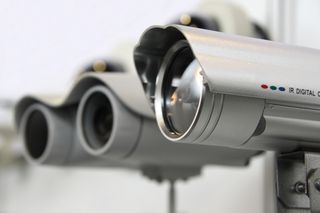CCTV service Internet Eyes forced into privacy changes
The ICO clamps down on the controversial CCTV viewing website after a clip appears on YouTube.

A website which lets individuals watch over companies' CCTV footage via the web has been forced to make privacy changes.
The Internet Eyes service sparked privacy concerns when it was first announced in 2009, leading the Information Commissioner's Office (ICO) to delay the launch of the website while the watchdog carried out an investigation.
Privacy groups were upset when the ICO decided to let the website go live in October 2010.
It appears the ICO has kept a close eye on Internet Eyes, however, and today ordered changes after video footage from the service was seen on YouTube.
"CCTV footage should not end up on YouTube when it shows someone simply out doing their shopping. A person's CCTV image is their personal data," said deputy commissioner David Smith.
"The law says that it should only be disclosed where necessary, such as for the purposes of crime detection, and not merely for entertainment."
The ICO said it had only received one complaint about Internet Eyes, which offers rewards of up to 1,000 for members who spot shoplifters when viewing the footage.
Get the ITPro. daily newsletter
Receive our latest news, industry updates, featured resources and more. Sign up today to receive our FREE report on AI cyber crime & security - newly updated for 2024.
An ICO investigation discovered Internet Eyes did not ensure the transfer of CCTV images it was streaming to viewers was encrypted.
As Internet Eyes did not track its viewers' activities, it was not able to identify which viewer posted the clip on YouTube, the ICO said.
Internet Eyes has now agreed to encrypt the transfer of CCTV images, as well as establish an audit trail for viewer activity and ensure "proper checks" are carried out on registered viewers.
Furthermore, from 31 July, the service has been told to ensure no viewer can access footage from cameras located in their postcode, or in any postcode district within a 30 mile radius of their registered location.
"We will continue to keep a close watch on them [Internet Eyes] and do not rule out taking more formal enforcement action if further complaints are received," Smith added.
Not good enough?
Privacy groups may not be won over by the ICO's actions, however.
Daniel Hamilton, director of the Big Brother Watch, was not convinced the ICO had gone far enough.
"Today's ruling does little to address fundamental concerns many have about this system and its impact upon personal privacy," Hamilton told IT Pro.
"It's fundamentally wrong to hand untrained and unaccountable voyeurs the power to monitor CCTV images. This should be left to trained professionals."
Tom Brewster is currently an associate editor at Forbes and an award-winning journalist who covers cyber security, surveillance, and privacy. Starting his career at ITPro as a staff writer and working up to a senior staff writer role, Tom has been covering the tech industry for more than ten years and is considered one of the leading journalists in his specialism.
He is a proud alum of the University of Sheffield where he secured an undergraduate degree in English Literature before undertaking a certification from General Assembly in web development.





